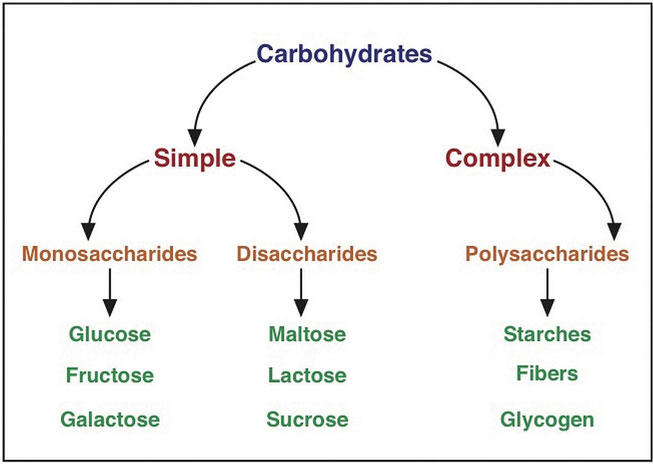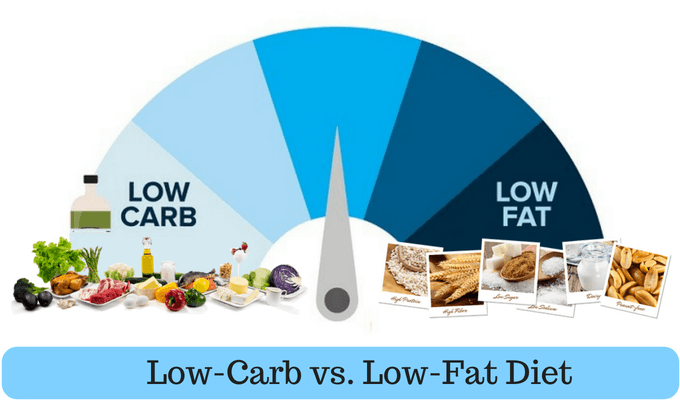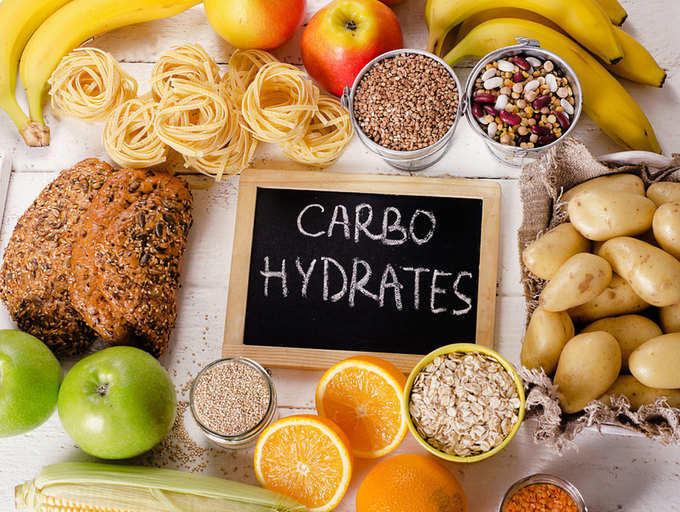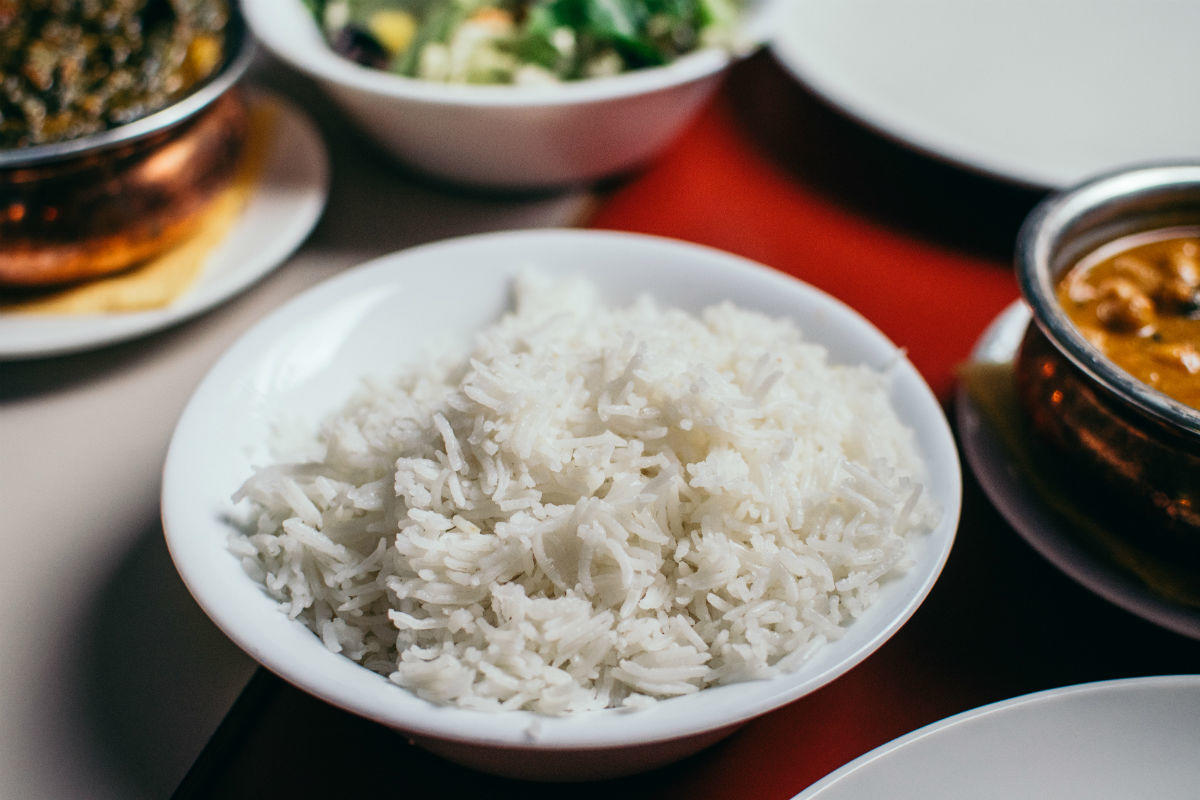Carbohydrates refer to the sugars, starches, and fibers found in fruits, grains, vegetables, and milk products. Despite having a bad reputation, carbohydrates, one of the basic food groups, are important to a healthy diet. They are called carbohydrates because, at the chemical level, they contain carbon, hydrogen, and oxygen.
Carbohydrates are macronutrients, meaning they are one of the three main ways the body obtains energy, or calories.
Carbohydrates are one of three macronutrients. Protein and fats are the other two. Macronutrients are essential for proper body functioning, and the body requires large amounts of them. As the body cannot produce macronutrients on its own, all macronutrients must be obtained through diet.

Types of Carbohydrates
Carbohydrates are sources of energy for the central nervous system and for working muscles. They also enable fat metabolism. Broadly, carbohydrates are classified as simple or complex carbohydrates. The difference between the two forms is in their chemical structure and how quickly the sugar is absorbed and digested. More specifically, carbohydrates can be categorized into five major groups.

Monosaccharides
The word monosaccharide is derived from mono, meaning "one", and saccharide, meaning "sugar". The common monosaccharides are glucose, fructose, and galactose. Each simple sugar has a cyclic structure and is composed of carbon, hydrogen, and oxygen in ratios of 1:2:1 respectively.
Glucose
Glucose is the main sugar metabolized by the body for energy. The D-isomer of glucose predominates in nature and it is for this reason that the enzymes in our body have adapted to binding this form only. Since it is an important energy source, the concentration of glucose in the bloodstream usually falls within a narrow range of 70 to 115mg/100 ml of blood. Sources of glucose include starch, the major storage form of carbohydrate in plants.
Galactose
Galactose is nearly identical to glucose in structure except for one hydroxyl group on carbon atom number four of the six-sided sugar. Galactose is not normally found in nature in large quantities. However, it combines with glucose to form lactose in milk. Once absorbed by the body, galactose is converted into glucose by the liver so that it can be used to provide energy for the body.
Fructose
Fructose is a structural isomer of glucose, meaning it has the same chemical formula but a completely different three-dimensional structure. The main difference is that fructose is a ketone in its linear form while glucose is an aldehyde. Upon consumption, fructose is absorbed and converted into glucose by the liver in the same manner as lactose. Sources of fructose include fruit, honey, and high-fructose corn syrup.
Disaccharides
Disaccharides, meaning "two sugars", are commonly found in nature as sucrose, lactose, and maltose. They are formed by a condensation reaction where one molecule of water condenses or is released during the joining of two monosaccharides. The type of bond that is formed between the two sugars is called a glycosidic bond.
Good vs Bad Carbohydrates
When you consult with the best dietitian near me, they will tell you that carbohydrates are neither "good" nor "bad." It is more accurate to describe carbohydrates as "complex" and "simple." Both kinds of carbohydrates can also be refined.
Complex Carbohydrates
Complex carbohydrates are polysaccharides, meaning that they contain at least three glucose molecules. They are found in foods high in fiber and starch, which take longer to digest and contain important vitamins, minerals, prebiotics, and antioxidants. Complex carbs help regulate appetite and blood sugar, keeping you feeling full for longer. Whole grains, beans, quinoa, legumes, oats, and brown rice are excellent sources of complex carbs.
Simple Carbohydrates
Simple carbohydrates contain only one or two sugar molecules; they are referred to as monosaccharides and disaccharides. Foods high in simple carbs contain naturally occurring or added sugars and are digested quickly. Fruits, juices, milk, white flour, white rice, sugar, and soda are simple carbs. While some of these foods provide nutrients (like vitamins in fruit and protein in milk), processed carbohydrates like crackers and chips lack essential nutrients, such as fiber and vitamins.

Benefits of Carbs in Your Diet
A common misconception is that carbohydrates make us fat. Well, sure if they are eaten in unnecessarily large quantities, high-carb foods can contribute to weight gain. The truth is that carbohydrates are an important macronutrient. Here are the most compelling reasons to keep carbs in your diet.
Mood Booster
Scientists believe that carbs promote the production of serotonin, a feel-good brain chemical. Scientific studies have shown people to combat anxiety and depression on a low-fat, high-carb diet with a focus on low-fat dairy, whole grains, fruit, and beans.

Aid in Weight Loss
Researchers have found that those who increased their fiber intake generally tend to lose weight. Many carbohydrates contain dietary fiber, which is actually an indigestible complex carbohydrate. Fiber can help keep you feeling full for longer and aids in healthy digestion, both of which can aid in weight loss.
Good for a Healthy Heart
Replacing refined grains with whole grains may help reduce total body fat and belly fat.
How Much Carbohydrate is Enough?
The recommended daily amount (RDA) of carbs for adults is around 4.7 ounces (135 grams). Major health organizations also recommend that everyone should have their own carbohydrate goal. Carb intake for most people should be between 45% and 65% of total calories. One gram of carbohydrates equals about 4 calories, so a diet of 1,800 calories per day would equal about 202 grams on the low end and 292 grams of carbs on the high end.
As per the recommendations of the Food and Agriculture Organization (FAO), the intake of total carbohydrate should be enough to provide 55% to 75% of the total energy requirement. Proteins should provide 10% to 15% and fats should provide 15% to 30% of the total energy. This requirement can be met by consuming a daily minimum of 400 grams of vegetables and fruits including 30 grams of pulses, nuts, and seeds.
Learn about the needs of your specific body and lifestyle with a dietitian in Bangalore or your city (or online!).
Healthy High Carb Foods
Here are our top picks in high-carb foods that are incredibly healthy. You might be surprised to find a number of popular fruits and vegetables on this list.
Oats
Oats are healthy whole grains and a source of many vitamins, minerals, and antioxidants. Raw oats contain 70% carbs. A 1-cup (81-gram) serving contains 54 grams of carbs, including 8 grams of fiber. They are particularly high in a specific type of fiber called oat beta-glucan.
Oats are very filling, which could help support healthy weight management
Oats are also a source of protein and contain more protein than most grains. Eating oats may reduce the risk of heart disease by lowering your cholesterol levels. It also lowers blood sugar levels, especially in people with type 2 diabetes.
Bananas
One large banana (136 grams) contains about 31 grams of carbs, either in the form of starches or sugars. Bananas are also high in potassium and vitamins B6 and C, and they contain several beneficial plant compounds. Owing to their high potassium content, bananas may help lower blood pressure and improve heart health.
Sweet Potato
One half-cup (100 g) of this delicious, nutritious tuber or root vegetable contains about 20.7 grams of carbs, which consists of starch, sugar, and fiber. Sweet potatoes are also rich in vitamin A, vitamin C, and potassium, as well as antioxidants that help neutralize harmful free radicals in your cells to protect you against chronic diseases.
Milk and Yogurt
Lactose, a form of naturally occurring sugar, is abundant in milk and yogurt. These two dairy products are also rich in protein and calcium. Consume 3 cups of dairy foods, such as milk or yogurt, on a daily basis to help meet your nutrient needs when following a 2,000-calorie diet. One cup of nonfat, fruit-flavored yogurt contains about 47 grams of carbohydrates.

Beet
Beets are a purple root vegetable. Raw and cooked beets contain about 10 grams of carbs per 100 grams, mainly from sugar and fiber. Beets are rich in vitamins and minerals, along with powerful antioxidants and plant compounds. They are also high in inorganic nitrates, which are converted into nitric oxide in your body. Nitric oxide lowers blood pressure and may decrease the risk of several diseases.
Kidney beans
A member of the legume family and a variety of the common bean, cooked kidney beans contain about 21.5 grams of carbs per 100 grams, in the form of starches and fiber. They are also high in protein. Kidney beans are a good source of many vitamins, minerals, and plant compounds, as well as antioxidant compounds, including anthocyanins and isoflavones. The health benefits of kidney beans include improved blood sugar regulation and a reduced risk of colon cancer. However, raw or improperly cooked kidney beans are toxic!
Apples
Apples contain about 14–16 grams of carbs per 100 grams. Apples are rich in many vitamins and minerals. They are a good source of vitamin C, antioxidants, and fiber. Apples aid blood sugar management and improve heart health.
Chickpeas (Chana)
Also known as garbanzo beans, chickpeas are part of the legume family. Cooked chickpeas contain 27.4 grams of carbs per 100-gram serving, along with almost 8 grams of fiber. They are a good source of plant-based protein. Chickpeas contain many vitamins and minerals, including iron, phosphorus, and B vitamins. Chickpeas improve heart health and digestive health. Ongoing research suggests that they may also help protect against certain types of cancer.
You can find an online dietitian to teach you more about staying healthy on Superprof.
Summarise with AI:















